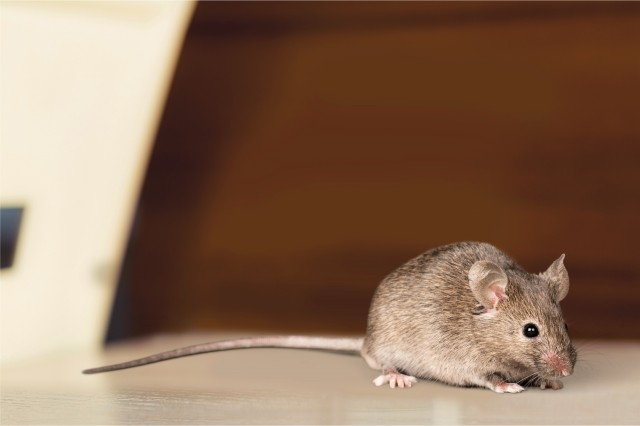In today's fast-paced world, the integration of technology into everyday tasks has become indispensable. One such innovation is automated pest control scheduling, a system that is transforming how we handle pest management. This advanced approach not only makes pest control more efficient but also offers significant benefits for both residential and commercial spaces.
But what exactly is automated pest control scheduling? It is a system that uses technology to streamline pest control processes, ensuring that pest management is timely, accurate, and less reliant on human intervention. By leveraging automation, businesses and homeowners can maintain a pest-free environment without the constant worry of scheduling and monitoring pest control services manually.

The Need for Automation in Pest Control
Pests can cause significant damage to properties and pose health risks to occupants. Traditional pest control methods often require regular manual intervention, which can be time-consuming and prone to human error. Automated systems solve these issues by providing a consistent and reliable solution. As highlighted in Smart Pest Alert Integration, automation ensures that pest alerts are timely and accurate, reducing the chances of infestations going unnoticed.
Cost-Effective and Time-Saving
One of the primary advantages of automated pest control scheduling is its cost-effectiveness. By automating the scheduling process, property owners can save on recurring pest control expenses. Scheduled services can be optimized to target peak pest activity times, ensuring maximum effectiveness while minimizing costs. This strategic approach not only saves time but also enhances the overall efficiency of pest management systems.
Enhanced Accuracy and Efficiency
Automation allows for precise control over when and how pest control measures are implemented. According to AI Pest Control Strategy for Food Chains, automated systems are equipped with sensors and AI technology that can detect pest activity with high accuracy. This means that interventions can be more targeted and effective, reducing the need for broad-spectrum pesticide applications.
How Automated Pest Control Scheduling Works
The core of automated pest control scheduling lies in its ability to integrate with various technologies. Systems generally include sensors, cameras, and AI-driven software that work together to monitor and manage pest activity. These technologies can provide real-time data and analytics, enabling property owners to make informed decisions about pest management strategies.
Integration with Smart Devices
Many modern automated pest control systems can integrate with smart devices, allowing users to monitor and control pest management activities remotely. This integration is particularly beneficial for businesses that manage multiple properties, as it provides a centralized system for overseeing pest control efforts across different locations. Learn more about the benefits of smart pest control solutions in Smart Traps for Pest-Sensitive Industries.
Data-Driven Decisions
Automated pest control systems collect vast amounts of data, which can be used to improve pest management strategies over time. By analyzing trends and patterns in pest activity, property owners can adjust their approaches to be more proactive and less reactive. This data-driven decision-making process is a significant leap forward in the field of pest control.
Benefits of Automated Pest Control Scheduling
The shift towards automation in pest control offers numerous benefits, making it an appealing choice for many. From improved efficiency to enhanced safety, the advantages of automated systems are numerous.
Environmental Benefits
Automated pest control systems are designed to minimize the use of harmful chemicals, making them more environmentally friendly than traditional methods. By targeting specific pests and minimizing unnecessary pesticide applications, these systems contribute to a healthier environment. Discover more about eco-friendly pest control strategies in AI Pest Protection for Food Safety Audits.
Improved Safety
Reducing the reliance on chemical pesticides not only benefits the environment but also enhances safety for humans and pets. Automated systems ensure that pest control measures are applied precisely, reducing the risk of exposure to hazardous substances.
Challenges and Considerations
While automated pest control scheduling offers many benefits, there are considerations to keep in mind. Initial setup costs can be high, and there may be a learning curve associated with new technologies. However, the long-term savings and efficiency gains often outweigh these initial hurdles.
Customization and Flexibility
Each property is unique, and pest control needs can vary widely. Therefore, it is essential to choose a system that offers customization and flexibility to meet specific requirements. As explored in Smart Pest Control for Regulated Environments, selecting the right system is crucial for achieving optimal results.
Staying Ahead of Technological Advances
The field of pest control technology is rapidly evolving, with new developments emerging regularly. Staying informed about the latest advancements is vital for ensuring that your pest management strategies remain effective and up-to-date.
Conclusion
Automated pest control scheduling represents a significant advancement in the field of pest management. By leveraging technology, property owners can enjoy improved efficiency, cost savings, and enhanced safety. As automation continues to evolve, the future of pest control looks promising, offering innovative solutions to age-old problems.

FAQ
What is automated pest control scheduling?
Automated pest control scheduling is a technology-driven system that automates the scheduling and implementation of pest control measures, ensuring timely and accurate pest management.
How does automation improve pest control efficiency?
Automation improves efficiency by providing precise control over pest management activities, reducing the need for manual intervention and minimizing human error.
Are automated pest control systems environmentally friendly?
Yes, automated systems are designed to minimize chemical use, making them more environmentally friendly than traditional pest control methods.
This article contains affiliate links. We may earn a commission at no extra cost to you.
